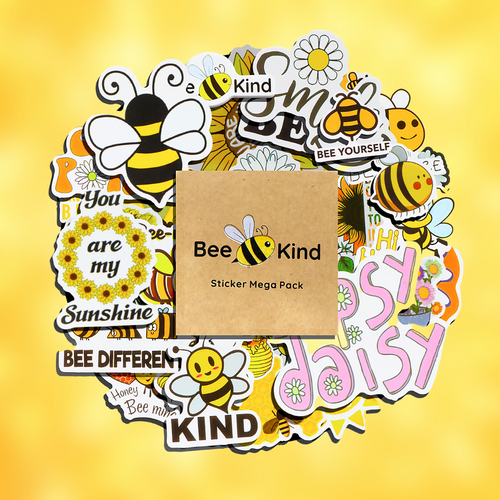It’s no secret that bees are very intelligent little creatures. Despite bee's brain is about the size of a sesame seed, they compensate for their small brain size with greater brain density. Their brain is ten times denser than the brains of mammals.
Their brains appear to have neuroplasticity which means that their brain is capable of learning and adapting and performing the same functions, such as memory, in various places in the brain.
Here 4 fascinating facts that prove that bees are actually very smart!
1. Bees can think and make collective decisions
Experiments and observations show that honeybees do indeed have the ability to think. They have to perform many tasks that require intelligence-- they must find flowers, figure out if they are a good source of nectar, find their way back to the hive, and then share this information with the other foragers.
Compared to other insects, they have a much greater ability to learn and remember.
Bees are also well known for their ability to make collective decisions when they search for foods or new nests. Bees can prevent bad information from becoming viral, although they copy each other through communication and social learning.
In the early 20th century, Austrian behavioral biologist Karl von Frisch found that worker honey bees use a kind of “waggle dance” for communicating with each other. When a bee finds a good source of food, it dances for a long time. When it finds a poor one, the duration of the dance is short or simply non-existent.
Bees have also developed a sense of democracy. When looking for a location for a new home for, say, 10,000 bees, 200 older bees form a little "colony" and fly off looking for options.
2. Bees can can count and solve tasks
Entomologists recently discovered that bees have a capacity to discriminate numbers. Honeybees can identify a piece of paper with zero dots as ‘less than’ a paper with a few dots. It has always been assumed that what separates man from the animal world (among other things) is an understanding of the abstract concept of “zero.” But scientists discovered that untrained honeybees have an understanding of an “empty set.”
What is more, in 2017, researchers from Queen Mary University of London demonstrated that bees can learn to gain a reward and then show others to do the same. The bees were taught by a decoy bee to move a small ball to a particular location – and some of them even managed to solve the task more efficiently by shortening the distance.
3. Bees may feel emotions
We have not yet been able to prove that bees have emotions, but some experiments have made scientists wonder if some we will someday.
Researchers analyzed how bees approached chemical mixtures with different gradients of either appealing or unappealing smells. Half of the bees studied were shaken in a chemical mixing device for a minute. This was meant to agitate the bees, to see if it would alter their approach to the chemicals.
As it turned out, the shaken bees were more hesitant to approach the good-smelling chemicals than the non-shaken bees. From this, we can scientifically say that bees have a persistent state of negative affect that’s triggered by agitation.
4. Bees can recognize human faces
According to a new study that shows honeybees, who have 0.01% of the neurons that humans do, can recognize, and remember individual human faces.
Visual scientist Adrian Dyer of Cambridge University in Cambridge, England pinned photographs of four different people's faces onto a board. By rewarding the bees with a sucrose solution, scientist repeatedly coaxed the insects to fly to a target face, sometimes varying its location.
Even when the reward was taken away, the bees continued to approach the target face accurately up to 90% of the time. What is more bees could pick out the target face even two days after being trained!
A portion of every purchase at Bee Kind Shop is donated to non-profit organizations that help save bee colonies around the globe.











